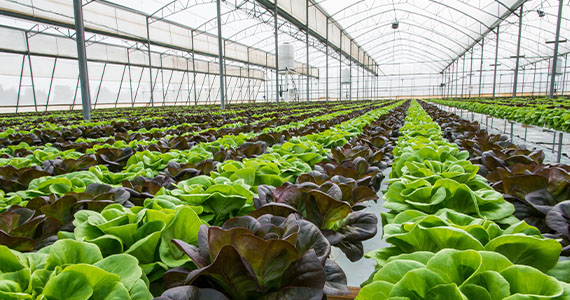Controlled environment agriculture poised to boost UK's horticultural exports

The last few years have seen the controlled environment agriculture (CEA) branch of British food production decrease in size, primarily driven by higher energy costs. CEA technologies are highly energy intensive, but with careful and sustainability-minded management, they have great potential.
A team of industrial sustainability experts from IfM Engage, the IfM’s knowledge transfer arm, have collaborated with consultants from Camrosh to develop a report which assesses the potential for CEA to contribute to greater food security, affordability, and the Net Zero goal. The report offers the following recommendations to policymakers and leaders within the agricultural sector:
- Energy efficiency measures should be encouraged throughout the sector, with a focus on integrating low/zero carbon energy supply systems into new CEA builds. The necessary technologies already exist for low carbon CEA and are largely proven.
- Support, including from policy mechanisms, is required for CEA to move forward in a low carbon manner. This presents a significant opportunity for the UK, and can have a positive impact on both local and national economies.
- Recommendations should be put in place now to facilitate the long investment horizons of CEA, typically 20-50 years. Current investments will impact the state of food production in 2050.
With the right support for sustainable operations, CEA can significantly boost the UK production of fruit and vegetables for domestic consumption and export, whilst reducing the geographical footprint of the agricultural sector.
Read the full case study here: https://engage.ifm.eng.cam.ac.uk/project/future-proofing-controlled-environment-agriculture-with-defra/









